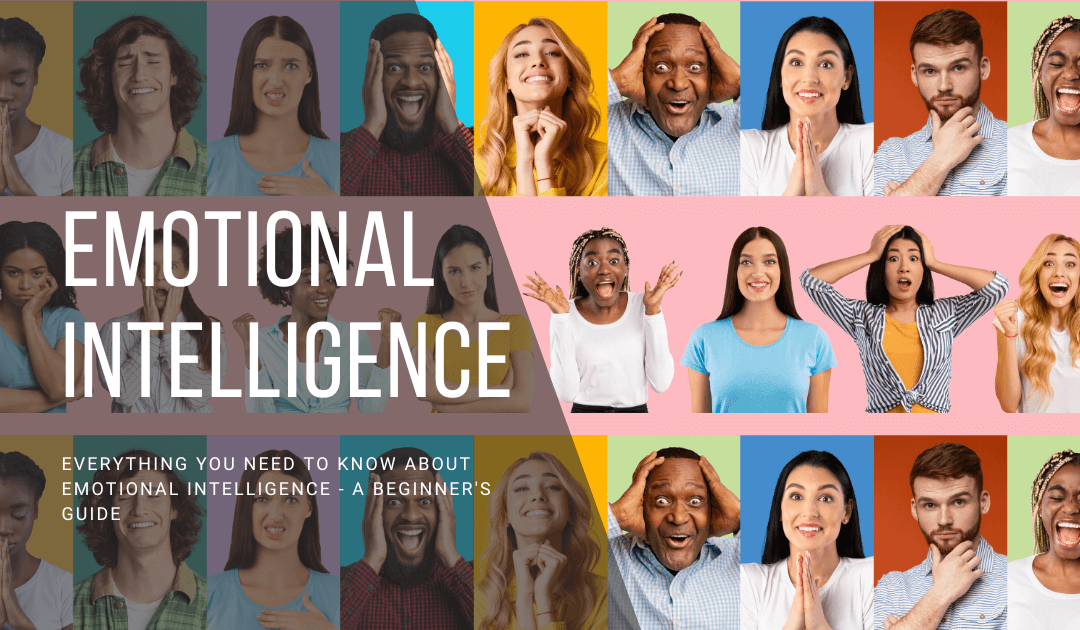Have you ever wondered why some people seem to have a knack for navigating through life’s ups and downs with grace and ease, while others constantly seem to struggle? Well, the secret might just lie in something called emotional intelligence.
It’s this incredible tool that many of us aren’t even aware we possess, yet it holds the power to transform our personal and professional relationships.
But what exactly is emotional intelligence, and more importantly, how can understanding and improving it change your life for the better? Stick around, and we’ll explore just that.
What is Emotional Intelligence (EI)?
At its core, Emotional Intelligence is about knowing, understanding, and handling your own feelings, as well as being able to pick up on other people’s emotions and react in the right way.
It was coined by researchers Peter Salovey and John Mayer, yet got famous through Dan Goleman in the ’90s. Emotional Intelligence (EI) redefines the concept of “smartness” by surpassing traditional intelligence assessments.
Its Role In Everyday Life:
Think about emotional intelligence like your own personal assistant, quietly working behind the scenes in all parts of your life.
Ever been in a tight spot and somehow found your way out with a cool head? Or maybe you’ve defused a tense argument with just the right words. That’s your EI kicking in!
It’s like having an internal GPS that helps you handle your feelings and grasp those of the folks around you, making everyday interactions smoother and more meaningful. Whether it’s at work, at home, or with friends, boosting your EI can bring about better outcomes and deeper connections.
It’s kind of like the secret recipe for a well-balanced and harmonious life.
The Building Blocks of EI:
To understand emotional intelligence fully, it’s useful to break it down into its core components, which include:
Self-awareness:
Recognizing one’s own emotions and their effects is the starting point of EI. It involves the ability to monitor and label feelings without judgment or self-criticism.
This self-awareness allows individuals to understand how their emotions influence their thoughts and behaviors, ultimately leading to better self-control.
Self-awareness can be developed through mindfulness practices such as meditation or journaling. It involves paying attention to one’s inner experiences, including thoughts, feelings, and bodily sensations.
Self-regulation:
Once you’ve figured out your emotions, the next step is handling them. This means keeping impulsive reactions in check and not letting negative feelings lead you down an unhealthy path.
Developing self-regulation for higher emotional intelligence takes practice and dedication. It starts with being mindful, giving you the space to think before reacting impulsively.
Techniques such as deep breathing, meditation, and guided imagery can help in calming the mind and giving space to choose a more thoughtful response.
Motivation:
Self-motivation comes from that inner fire to reach your personal and professional goals. People with high emotional intelligence are usually highly self-motivated, always striving to better themselves. They know exactly what they want to achieve and are ready to work hard for it.
Developing self-motivation involves identifying your values, interests, and strengths. This enables individuals to align their goals with their personal aspirations, leading to more meaningful and fulfilling pursuits.
Empathy:
Empathy, a key part of emotional intelligence, is all about being able to share and understand how others feel.
It’s like a doorway to creating strong social bonds and nurturing a supportive environment. When you’re empathetic, you get where others are coming from and can build better relationships and solve conflicts. Plus, empathy lets you see things from different angles and embrace diversity.
Developing empathy is all about making a deliberate effort to really listen and stay open to others’ experiences without jumping to conclusions. It’s about getting better at sensing and appreciating how others feel from their point of view. Trying out mindfulness can really help with this – it makes us more tuned in and aware of the emotions people around us are going through.
Communication:
Effective communication is another crucial part of emotional intelligence. It’s not just about what you say but also how you say it. Body language, tone, and facial expressions all play a role. People with high EI are good at sharing their thoughts and feelings in a clear and respectful way.
They’re also skilled at picking up on cues from others, which helps with clearer communication and fewer misunderstandings. Plus, emotional intelligence allows people to adjust their communication style based on the situation and who they’re speaking to.
Social skills:
Effective communication, conflict resolution, leadership, and working well in a team all come down to your social skills. Social skills cover a variety of abilities like empathy, managing emotions, and handling relationships.
People with high EI have great social skills that help them handle tricky social situations. They can create and keep positive relationships, solve conflicts peacefully, and team up to reach shared goals.
Why Emotional Intelligence Matters:
So, why should you care about emotional intelligence? Let’s look at a few reasons:
The Return On Emotional Investment:
Understanding and nurturing your emotional intelligence is like tending to a precious garden. Just as every seed needs nurturing to flourish into a beautiful bloom, growing emotional intelligence takes ongoing care and mindfulness. This investment pays off in many ways, enriching life with deeper connections, better decision-making, and overall well-being.
Personal Life:
EI plays a crucial role in personal development. As one becomes more emotionally intelligent, they are likely to experience heightened self-esteem, stress management, improved relationships, and overall well-being.
Professional Life:
Employers are increasingly valuing EI as a key skill among employees. High EI is correlated with better performance, leadership potential, and the ability to adapt to rapidly changing work environments.
Mental Health And Well-Being:
Developing one’s emotional intelligence can be protective against mental health challenges. It helps individuals cope with the ups and downs of life and maintain a healthy perspective.
Developing Emotional Intelligence:
Enhancing emotional intelligence is not a destination but rather a continuous journey of self-discovery and refinement. Here’s a roadmap for beginners on how to develop EI.
Tips and Strategies:
Begin by keeping a journal to log your emotional experiences, noting triggers and responses. Engage in reflective practices like meditation to foster self-awareness and self-regulation.
Practical Exercises:
Participate in role-playing activities to practice perspective-taking and empathy. Engage in active listening to improve your social skills and connect more deeply with others.
Seek Feedback:
Another valuable method to develop emotional intelligence involves seeking feedback on your behavior and emotional responses from trusted individuals. Constructive feedback can illuminate aspects of your emotional reactions and social interactions that you may not recognize.
Approach this with an open mind and a willingness to learn and grow from what others observe. This practice not only aids in self-awareness but also enhances your ability to see things from multiple perspectives.
Challenges in Developing EI:
While the path to enhancing emotional intelligence (EI) is filled with potential for personal growth and improved interpersonal relationships, it is not without its challenges.
Understanding these potential obstacles and learning how to navigate them is crucial for anyone undertaking this journey.
Dealing with Complexity:
One of the most significant challenges in developing emotional intelligence is the sheer complexity and subjective nature of emotions. There’s rarely a one-size-fits-all approach, and what works for one person may not for another.
Common Obstacles:
Dealing with intense emotions, breaking free from old habits, or handling tricky relationships can really trip us up sometimes. Remember, taking it slow and staying open to growth is key when facing these challenges.
Overcoming Resistance:
Resisting the changes needed to boost emotional intelligence can feel like a mental roadblock. However, taking small, steady steps can really help make it all feel less overwhelming and more doable.
Conclusion
The significance of emotional intelligence cannot be overstated. It is a foundational skill that shapes our lives and the lives of those around us. By setting out on the path of understanding and developing EI, you are investing in a future characterized by compassion, resilience, and wisdom. Welcome this powerful ally into your personal arsenal, and watch as the tapestry of your life shifts to vibrant, engaging shades.



